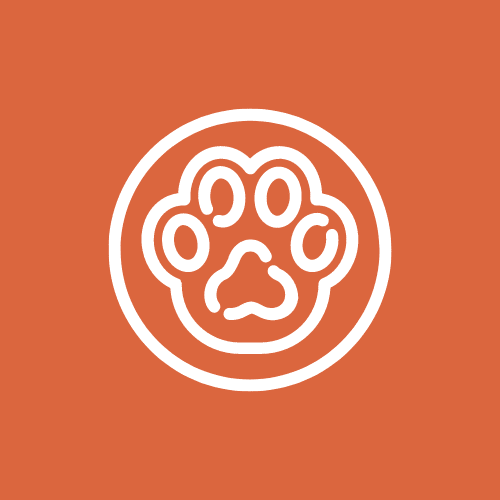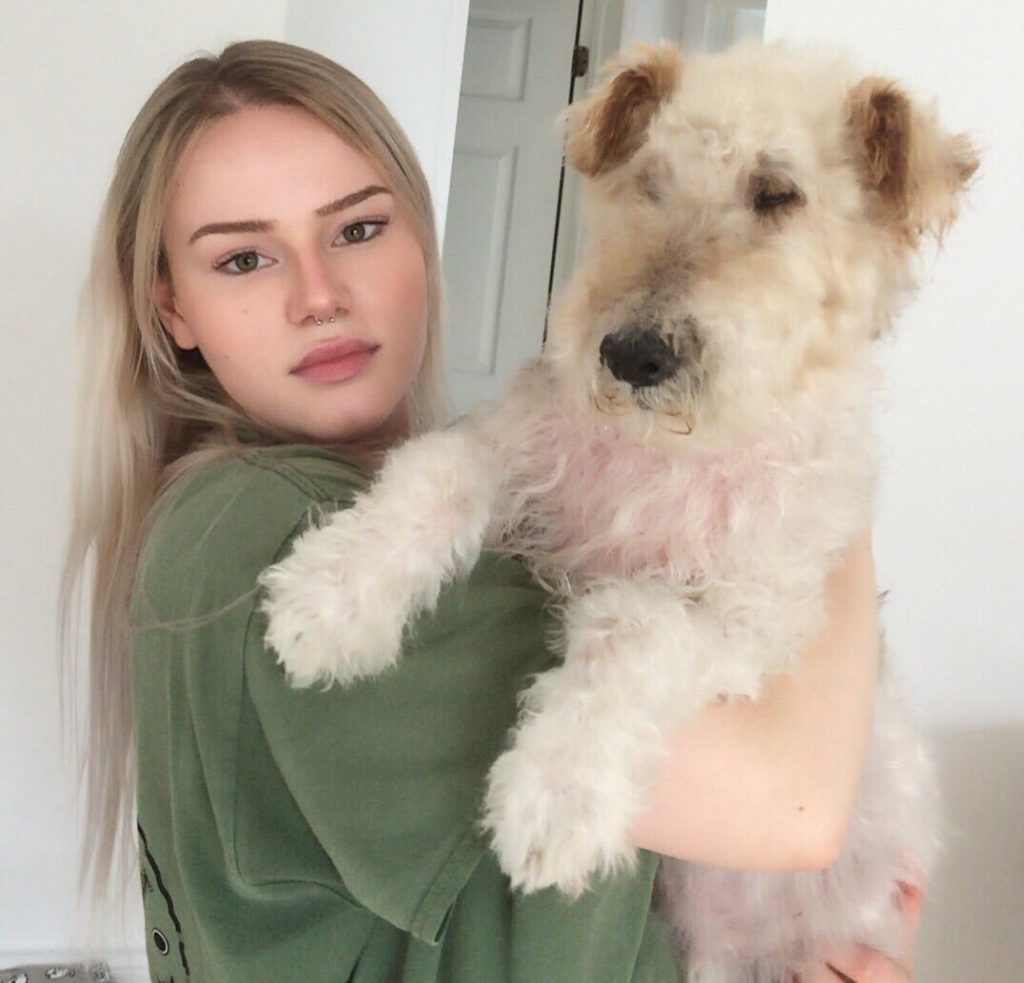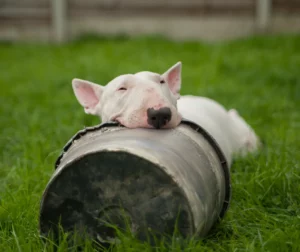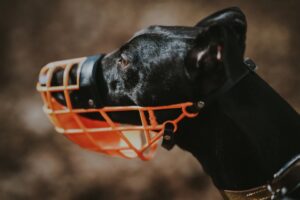If you’re a dog owner, you know that our furry friends can have some pretty quirky behaviors. One of the more concerning issues can be when your dog starts pooping in their sleep. It’s not only frustrating to clean up, but it can also be a sign of an underlying health issue.
In this article, we’ll explore the reasons why dogs might poop in their sleep, ways to prevent it from happening, and some health problems that may be causing it. Plus, we’ll provide tips on how to choose a diaper for your senior dog if necessary. So, if you’re ready to learn more about this common but often misunderstood behavior, let’s dive in.
What is Sphincter Incontinence in Dogs?
Sphincter incontinence is a condition that affects a dog’s ability to control its bowel movements. This can be caused by various factors, including nerve damage, obesity, and aging. If your dog is pooping in its sleep regularly, it’s possible that they are experiencing sphincter incontinence.
What Are Ways to Stop a Dog from Pooping In Their Sleep?
There are several ways to stop a dog from pooping in its sleep. First and foremost, it’s important to consult with a veterinarian to rule out any underlying medical issues. Other ways to prevent this behavior include:
1. Feeding a Healthy Diet
A well-balanced diet can help regulate a dog’s digestive system, making it easier for them to control their bowel movements.
Fiber plays an essential role in maintaining a healthy digestive system. It adds bulk to your dog’s stool, which helps to keep things moving through their system. This, in turn, can help prevent constipation and diarrhea, two common causes of dogs pooping in their sleep.
While fiber is an essential nutrient for your dog’s digestive health, too much of it can actually be harmful. If your dog consumes too much fiber, it can lead to digestive upset, including gas, bloating, and diarrhea.
To avoid overloading your dog with fiber, it’s important to pay attention to the amount of fiber in their food. While high-fiber diets can be beneficial for some dogs, it’s important to make sure that your dog is getting the right amount of fiber for their individual needs.
For dogs who struggle with digestive issues or who are prone to pooping in their sleep, low-residue dog food may be a good option. Low-residue diets are designed to be easy on the digestive system and contain lower amounts of fiber than standard dog foods. These diets can help prevent digestive upset and promote regular bowel movements.
If you’re considering switching your dog’s diet, it’s important to consult with your veterinarian first. They can help you determine which type of diet is appropriate for your dog’s individual needs and can recommend specific brands or formulas that are appropriate for your dog’s age, breed, and health status.
In addition, try to establish a consistent feeding schedule, and avoid feeding them table scraps or foods that could upset their stomach.
2. Daily Exercise
Regular exercise is not only important for maintaining your dog’s physical and mental health but can also help improve their bowel function and reduce the likelihood of them pooping in their sleep. Exercise helps to stimulate the digestive system, which can help regulate bowel movements and prevent constipation.
In addition to aiding digestion, regular exercise can also help your dog maintain a healthy weight. Obesity is a significant risk factor for many health problems in dogs, including digestive issues, so keeping your dog at a healthy weight is essential for their overall health.
The amount of exercise your dog needs will depend on their age, breed, and overall health status. As a general rule, dogs should get at least 30 minutes of exercise each day, though some breeds may require more. Activities like walking, running, playing fetch, and swimming can all help keep your dog active and improve their bowel function.
In addition to physical exercise, mental stimulation is also important for your dog’s overall well-being. Engaging your dog in activities like puzzle toys, obedience training, and nose work can help keep them mentally sharp and reduce stress, which can also improve their bowel function.
3. Antibiotics
In some cases, pooping in their sleep can be a result of an underlying medical condition, such as an infection of the anal glands. Antibiotics can be an effective treatment for anal gland infections and can help improve stool consistency and control.
In addition to antibiotics, other medications like anti-diarrheal and anti-inflammatory drugs may be used to help manage stool incontinence.
4. Surgery
For more severe cases of stool incontinence, more specialized treatments may be necessary. These may include surgery to repair a damaged sphincter muscle or implantation of an artificial sphincter to improve bowel control.
If you suspect that your dog’s pooping in their sleep is due to a medical condition, it’s important to consult with your veterinarian as soon as possible. They can help diagnose the underlying cause of your dog’s symptoms and develop an appropriate treatment plan to help manage the issue.
What are the Reasons Why A Dog Might Poop In Their Sleep?
There are several reasons why a dog may poop in its sleep. These include:
– Lack of Potty Training
Young puppies may not have the necessary bowel control to hold their poop during sleep. Proper potty training and regular bathroom breaks can help resolve this issue.
– An Aging Body
As dogs age, their bodies undergo a natural process of physical decline, including the weakening of muscle mass and tone. This loss of muscle strength can affect various areas of the body, including those responsible for bowel control.
In addition to muscle weakness, older dogs may also experience other age-related health issues, such as arthritis or neurological conditions, that can affect their bowel control. Arthritis can make it painful for your dog to move around, which can make it more difficult for them to get outside to go potty. Neurological conditions can also affect your dog’s ability to control their bowel movements.
– Anal Wounds and Masses
An anal wound or mass can cause discomfort and pain for your dog, and can also lead to irregular bowel movements, including pooping in their sleep. Wounds and masses in the anal area can be caused by a number of factors, including infection, trauma, or even cancer.
If your dog has an anal wound or mass, they may exhibit symptoms such as difficulty defecating, straining during bowel movements, and even crying or whimpering in pain. In some cases, the wound or mass may cause fecal matter to leak out, leading to accidents and pooping in their sleep.
– Diseases That Affect The Intestines
Inflammatory bowel disease (IBD) is a condition that can affect dogs and cause inflammation in their digestive tract. This inflammation can lead to a variety of symptoms, including vomiting, diarrhea, weight loss, and even pooping in their sleep.
In addition to IBD, there are several other conditions that can affect a dog’s bowel movements and lead to accidents, including food allergies, infections, and certain medications. If your dog is experiencing changes in their bowel movements or exhibiting symptoms such as diarrhea or vomiting, it’s important to consult with your veterinarian to determine the underlying cause and develop an appropriate treatment plan.
– Neurological Issues
Nerve damage or other neurological issues can be a factor in a dog’s inability to control its bowel movements. The nerves in the digestive tract are responsible for controlling the movement of food and waste through the body, and any damage or disruption to these nerves can interfere with normal bowel function.
Neurological issues that can affect a dog’s bowel movements may include spinal cord injuries, nerve damage caused by trauma or disease, or degenerative conditions such as canine degenerative myelopathy. These conditions can cause a range of symptoms, including weakness, paralysis, and incontinence.
How To Choose A Diaper For Your Senior Dog?
If your senior dog is experiencing incontinence, you may need to consider using a diaper to prevent accidents. When choosing a diaper, consider the following factors:
1. Size
When selecting a diaper, it’s important to choose one that fits your dog snugly but isn’t too tight.
A diaper that is too loose can lead to leaks and accidents, while a diaper that is too tight can cause discomfort and even interfere with your dog’s ability to move around comfortably.
2. Material
Look for a diaper made from absorbent and breathable material to prevent irritation. Consider the absorbency level of the diaper as well.
For dogs with moderate to severe bowel incontinence, a highly absorbent diaper may be necessary to prevent leaks and keep your dog comfortable.
Diapers with multiple layers and a waterproof outer layer to help contain any messes are great options.
3. Durability
Choose a diaper that is durable enough to withstand regular use and washing.
Disposable and reusable options are available, so consider which option is best for your lifestyle and your dog’s specific needs. Reusable diapers are usually more environmentally friendly and cost-effective over time, but they do require regular washing and maintenance.
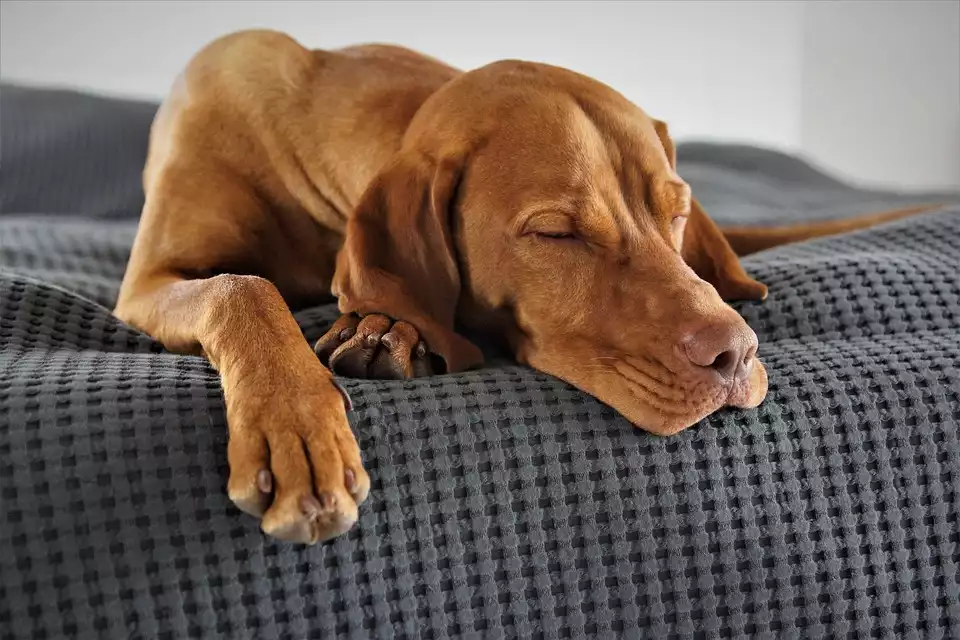
If you are interested in learning more about canine wellness, check out these articles:
